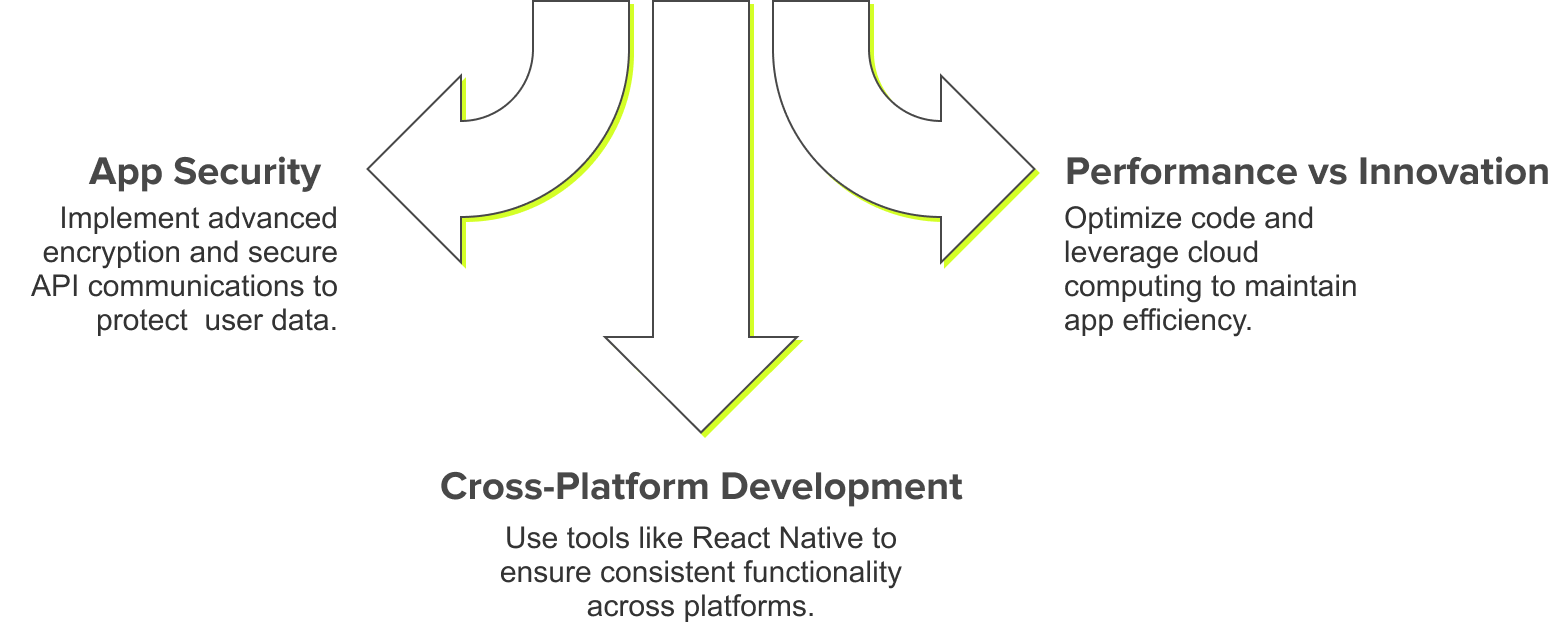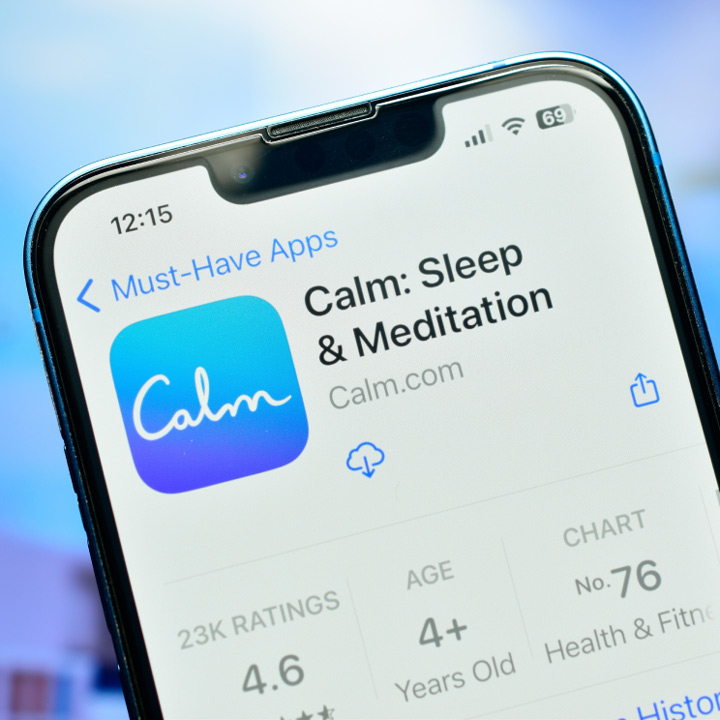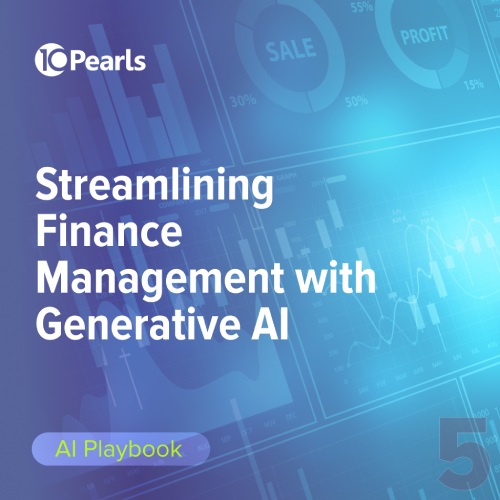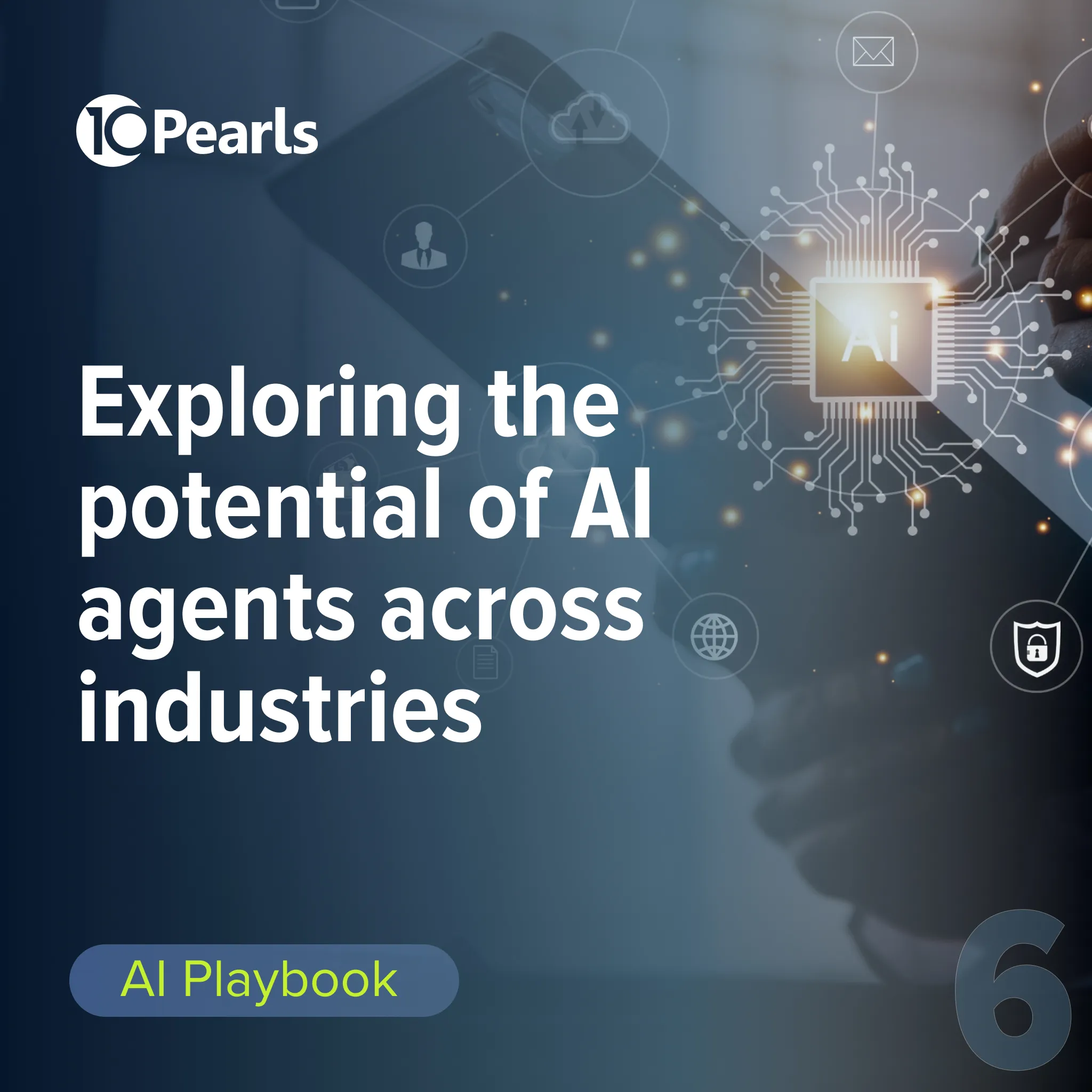How AI-Driven Mobile Apps Will Transform Industries in 2025 - 10Pearls


By 10Pearls editorial team
A global team of technologists, strategists, and creatives dedicated to delivering the forefront of innovation. Stay informed with our latest updates and trends in advanced technology, healthcare, fintech, and beyond. Discover insightful perspectives that shape the future of industries worldwide.
How AI-Driven Mobile App Development Will Transform Industries in 2025
Artificial intelligence is all set to redefine the digital landscape in 2025, particularly in mobile app development. Mobile apps are driving consumer engagement, revenue, and innovation. Because of this, their role in the AI-driven era cannot be underestimated.
In the coming year, AI-powered mobile apps won’t just enhance user experiences, they’ll redefine entire industries, driving innovation in ways we’ve only begun to imagine. With $935 billion in revenue generated by mobile apps in 2023, the stakes and opportunities are higher than ever.
Why personalized UI/UX will define app success in 2025
We have surpassed the days where tech companies could use a one-size-fits-all approach toward their user base. Whether it’s in the form of tailored content or custom solutions, consumers demand seamless and personalized experiences.
AI-powered personalization is now shaping how users interact with mobile apps in a way that is getting higher engagement and more customer loyalty. This completely makes sense as mobile apps now account for almost 90% of smartphone usage, further cementing their relevance in our daily lives.
Deploying effective UI/UX, along with AI’s ability to predict user preference will become the key differentiator for many businesses.

Why mobile app development is positioned for explosive growth
Mobile app development is thriving due to smartphone adoption and user demand for more personalized user experiences. Mobile app downloads are expected to exceed $230 billion annually by 2025. With such massive growth opportunities, developers are now under pressure to innovate and secure their share of the market.
Emerging AI-driven innovations transforming mobile apps
With AI causing a major shift in the mobile app development landscape and setting new benchmarks for innovation, mobile features like predictive analytics, voice assistance, and augmented reality are not only just being leveraged to enhance functionality, but also to elevate and redefine user experiences. The opportunities for innovation have expanded and are applicable in various ways:
Integrate multiple services into one platform
Analyze images for actionable insights
Provide smart automation across industries
Offer personalized healthcare support
Enhance financial transactions
& insights
Super apps
By providing a one-stop solution for shopping, communication, payment, entertainment, and even food delivery, AI-integrated super apps have completely changed the way users engage with digital services. Apps such as WhatsApp and Uber use AI to customize user experience and optimize their services, offering advanced data analytics and predictive insights. Super apps simplify daily tasks, and their growing adoption is not only reshaping consumer behavior but also setting new benchmarks for global app development.
Computer vision
Many industries have been transformed by the impact of AI-powered computer vision technology. While we’ve seen early applications in the form of facial recognition and object detection tools, we are starting to see more comprehensive use cases across healthcare, the automotive industry, and even real estate.
This technology enables systems to analyze images and videos, extracting actionable insights with remarkable precision and speed. 10Pearls recently developed an AI-powered computer vision solution that allows real estate businesses to appraise properties with immense efficiency, significantly reducing man-hours and operational costs while improving accuracy.
IoT-enabled apps
Similar to how smart home applications like Google Nest use AI to adjust the temperature in your home and learn living preferences, health-related apps like Fitbit and Apple Health use IoT sensors to monitor your vitals in real-time, equipping you with the tools to manage your health better.
Even in the field of logistics, Tesla’s Autopilot and Amazon’s Alexa use AI and IoT for autonomous driving, unmanned deliveries, and processing sensor data to make more informed decisions. AI integration has even found its way to farming with companies such as John Deere, which use precision farming to kill weeds without wasting any herbicide.
By creating real-time, intelligent, and personalized user experiences that drive innovation and efficiency, IoT apps are transforming day-to-day operations for many industries.
Health and fitness apps
AI-driven health apps are also making a significant impact in healthcare, driving user engagement while providing patients with quality healthcare support and value. The digital health market is growing rapidly, projected to reach $1 trillion by 2030, driven by advancements in AI technologies and user demand for efficient, data-driven healthcare solutions. Mobile apps like Ada Health use AI to identify symptoms and provide medical guidance, while MyFitnessPal uses AI technology to track your nutritional intake and fitness goals.
SkinVision is another innovative example that uses AI to detect early-stage skin cancer through image analysis. These apps have been groundbreaking as they don’t just offer personalized care and early intervention but also provide accessibility to those who might not have the resources to find adequate healthcare.
10Pearls recently developed a fully automated acute-care telemedicine solution for Amwell, which consolidates member health, streamlining access to essential patient information and reducing the need for clinicians to navigate multiple platforms, ultimately enabling more effective treatment planning.
Mobile wallets and fintech apps
AI has had a significant impact on the financial industry. Mobile wallets and fintech apps have changed how people manage their money and make transactions. By leveraging machine learning and predictive analysis, apps like PayPal, Cash App, and Revolut have been offering personalized financial insights, fraud detection, and seamless payments.
Now users can use AI for smarter budgeting, real-time spending alerts, customized credit offers, and informed financial decisions. Cash App has simplified investing for users through predictive market analysis while PayPal’s AI detects suspicious activity in an instant.
By adopting this tech, many financial institutions have gained a competitive advantage and reshaped markets with unmatched efficiency and convenience.

Overcoming challenges in mobile app development
While the opportunities are immense, there are still significant challenges to consider in mobile app development.

App security
Ensuring your apps are secure remains one of the most critical aspects of mobile app development. With the rise of AI-powered applications, sensitive user data such as financial and health records face risk from cyber threats, data breaches, malware, or phishing attacks. Developers have to integrate advanced level encryption, secure all API communications, and regularly carry out vulnerability assessments in order to safeguard their applications.
The growing use of IoT-enabled apps can further amplify the risk of a potential attack, demanding robust multi-layered security frameworks. By balancing innovation with stringent security measures, developers can ensure they are safeguarding user data and preventing any breaches that could erode user trust. As the mobile landscape evolves, staying proactive against emerging threats is crucial to delivering secure and reliable experiences.
Balancing performance with innovation
As users continue to expect seamless and high-speed functionality, developers must integrate new and cutting-edge features without compromising on app efficiency. High-tech functionality like AR and real-time data processing require significant computational power, which can put a lot of strain on devices and networks.
To achieve an optimal balance, developers must optimize code, leverage cloud computing, and conduct performance testing that ensures both speed and scalability. Developers also need to take into account varying device capabilities in order to maintain a consistent experience for all users across platforms.
Cross-platform development
With many users utilizing multiple devices, cross-platform development is more important than ever in mobile app development, balancing user experience, performance, and cost-efficiency across diverse platforms like iOS and Android.
Cross-platform development is an effective strategy for maximizing reach and performance. Tools such as React Native and Flutter allow developers to create applications for multiple platforms by utilizing shared codebases, but ensuring consistent functionality and aesthetic across devices is still complex. Many devices have specific compatibility issues and varying performance standards, which can further complicate matters.
Apps that changed entire industries
Uber: Revolutionizing ride hailing with AI

Uber has completely transformed urban mobility by integrating AI to optimize its services. The Uber app utilizes machine learning for route optimization and demand prediction, ensuring shorter wait times and efficient ride assignments for customers.
Features like “surge pricing” dynamically adjust fares based on real-time demand and supply, a concept which would have been nearly impossible to materialize without advanced AI algorithms.
Uber’s ability to anticipate user needs through predictive analytics exemplifies how AI-powered apps can stay ahead of consumer expectations. Currently, Uber operates in over 10,000 cities globally and is said to have facilitated an average of 23 million trips per day in 2022 alone.
Duolingo: Making language learning accessible
Duolingo has completely changed the way people learn languages by using AI to create personalized lesson plans tailored to user progress and preferences.
The app has a gamified structure, powered by natural language processing (NLP) in order to ensure continuous engagement. AI assesses user performance to adjust difficulty levels and provide a custom experience for each learner.
It uses NLP algorithms for instant feedback on pronunciation and grammar, and with over 500 million downloads, Duolingo’s accessibility and interactivity have made it the most downloaded educational app globally.

Calm: Personalized wellness through AI

The Calm app curates meditation experiences for individual users using AI. It records and tracks user data input, such as the level of stress and time preferences for meditation, and suggests sessions that best suit them. The Calm app also applies AI in sleep pattern tracking and recommends guided meditations or sleep sounds to help the user get better sleep.
Calm generated $300 million in 2023 and established its niche as a leader in the wellness app market. Its user-friendly interface and data-driven insights have set benchmarks for wellness apps globally.
These examples highlight how AI has transformed everyday apps into powerful tools for personalization, engagement, and growth. For businesses looking to innovate, these success stories underscore the importance of embracing AI-driven strategies to meet and exceed consumer expectations.
The future of mobile applications
By 2025, the integration of AI and mobile app development will be a game-changer across industries. Businesses that embrace AI-driven personalization, prioritize user experience, and adapt to technological advancements will thrive. With mobile app revenues projected to continue their upward trajectory, the potential for growth and innovation remains limitless.
As the digital ecosystem evolves, AI technologies will not only reshape mobile apps but also define how industries operate, connect, and grow. If you are looking for an experienced software engineering and product innovation partner, reach out to us and join us on our mission of leveraging AI to help businesses connect with their users.







